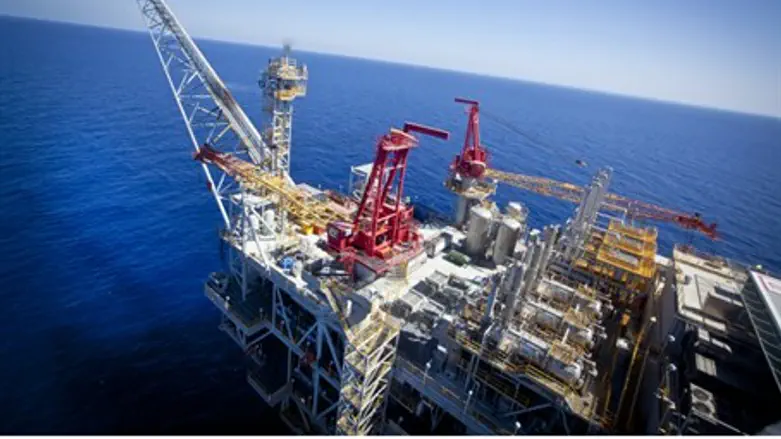
After years of bickering and haggling, the government approved on Sunday the outline for development of offshore natural gas fields, as presented by Minister of Energy, Dr. Yuval Steinitz, with the support of the prime minister.
The deal that is to be signed with private developers will increase the amount of gas produced from the Tamar field, and make possible the quick development of gas fields Leviathan, Karish and Tanin, among others.
The outline aroused harsh and heated opposition, mostly in leftist organizations, but after being submitted to public debate, it was approved by a large majority.
All in all, 17 ministers supported the outline, including Economics Minister Aryeh Deri. Environmental Protection Minister Avi Gabbai voted against it, and three ministers abstained because of conflicts of interest.
Headed for Knesset
At the insistence of Economics Minister Deri, however, the plan will now head for the Knesset – where its fate is far from clear. Deri refuses to sign the deal without Knesset approval.
Leftists see the deal as benefiting hated “tycoons” and demand that the gas be owned by the state. Proponents of the deal note that the developers risked their capital in finding and developing the gas fields, and that Israel has already reneged on agreements it signed with them. They also warn that if Israel dallies too much in signing the deal, future developers will steer clear of working with Israel, and point to Egypt as having made the same mistake.
Opposition Head MK Yitzchak Herzog warned after the vote Sunday that “Any decision about the existing gas outline is comparable to a signature on ice. A government headed by me will decide upon a fair and proper gas outline for the citizens of Israel, which will include monitoring of prices and will express a real concern for Israel's future.”
The deal, which has undergone considerable modification since negotiations began, will allow Noble Gas and Israel's Delek Group to keep ownership of Leviathan but require the sale of other assets, including stakes in the Tamar deposit.
It sets a price ceiling for gas sales to Israeli companies and commits the consortium to invest $1.5B into developing Leviathan over the next two years. The huge field contains about 22T cf of gas, and is expected to provide billions of dollars in revenue to Israel.
Prime Minister Binyamin Netanyahu won important backing for the agreement from the Central Bank last week.